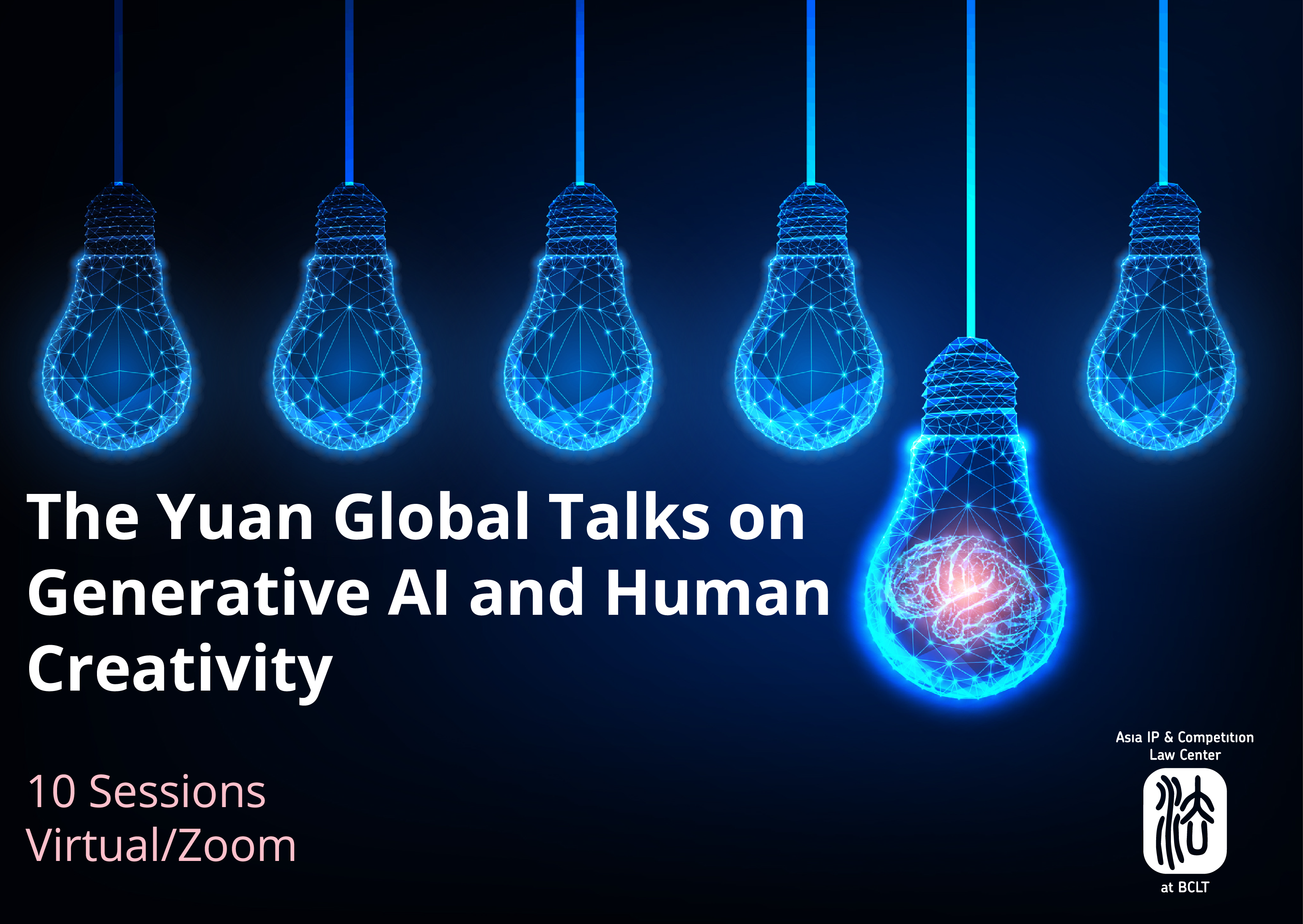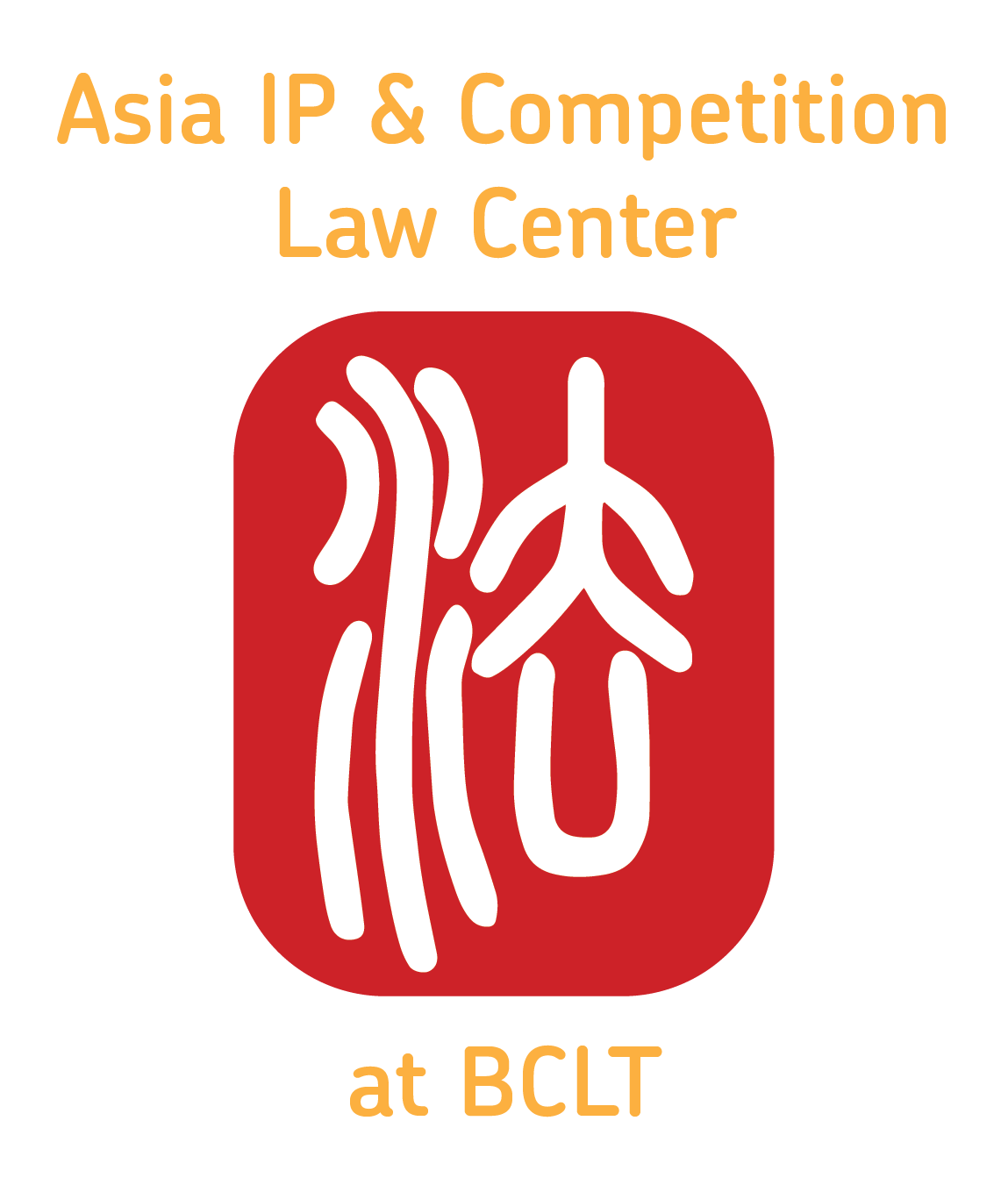Series Description
After decades of bust and boom, the year 2023 witnessed a meteoric rise of Generative AI (“Gen-AI”). Distinct from its predecessor Analytical AI, Gen-AI’s capability to produce ostensibly creative content, including aesthetically appealing “art” pieces with human prompts and innovative technical solutions to well-defined problems, heralds a paradigm shift in human being’s creative process. As manifested by the recent cases globally, this paradigm shift starts to pose real-world challenges to the good old IP system that aims to incentivize and honor human creativity. Among the various doctrinal challenges, two stand out at the moment as particularly pressing: (1) should IP protect the outputs of such human + AI (“Centaur”) creative synergies, and (2) can proprietary data be “fair used” to train Gen-AI? In the long term, how IP system addresses these challenges may have profound implications on the evolution of the Gen-AI ecosystem, and more importantly, the future of human creativity. Finding the proper answers however, requires a perspective that spans beyond the confines of IP doctrines alone – it demands solid understanding of the rapidly evolving value chain and commercialization landscape, core regulatory principles in harmony with a human-centered approach, the concrete mechanisms IP system uses to facilitate diversity and equity in creation, as well as a philosophical contemplation on what human creativity means in the dawning “age of Gen-AI”.
Against this backdrop, Berkeley Asia IP and Competition Law Center (“BAIC”) at BCLT launches the “Yuan Global Talks on Generative AI and Human Creativity.” The series is named for the Chinese “Yuan” (元), echoing the beginning of a new epoch, and “Yuan” (圆), a circle symbolizing inclusivity, equality and productive discourse – principles that happen to resonate with the hostess’ name, Dr. Yuan Hao, Senior Fellow and Co-Director of BAIC, who co-taught a brand new course titled “IP and Human Creativity in the ‘AI Age’” in the autumn of 2023. This conversation series strides beyond national borders, aiming to foster a constructive exchange between voices from diverse spheres. It is an invitation to scholars, creators, entrepreneurs and policy makers, particularly from the US and Asia, to forge a collaborated path through the evolving narrative of Gen-AI assisting, rather than displacing human creativity.
Talk I: Copyright Challenge – A Comparative Law View on Authorship
January 23, 2024 @ 4:30 p.m. (PT)
In Nov. 2023, the five-year-old Beijing Internet Court (“BIC”) issued a landmark judgment (Li v. Liu) on the copyright eligibility of an image generated with Stable Diffusion AI, finding the human user that provided elaborate prompts to the machine to be the “author”. This judgment has triggered a flurry of vigorous debates in China, and meanwhile attracted significant international attention. Some commented that this $70 ruling may have far-reaching implications on the evolution of AIGC in China, unleashing a trillion-dollar industry. Some contrasted this judgment with the various rejection decisions issued lately by the US Copyright Office (“USCO”), which found that the human users in the loop do not have sufficient authorial control, despite the hundreds of prompt inputs. The apparent disparity in outcomes however, may have largely shadowed the similarity of a human-centered approach adopted by both institutions facing a common conundrum. With the emergence of powerful Gen-AI tools and their varied synergies with human beings, we now start to witness real-world examples of “authorless works” as coined by Prof. Ginsburg and Luke Budiardjo. While these “works” may not fulfill the conventional authorship requirement, some of them may have remarkable commercial or even arguably artistic values (depending how we interpret “art”). How to properly address this common challenge faced by all jurisdictions, may require us to go beyond the doctrinal level and revisit the justifying principles of copyright law / author’s law, in light of the legal and economic context in the particular jurisdiction.
In this inaugural Talk, we invited Profs Guobin Cui and Qian Wang, two renowned copyright law scholars in China, to give us a nuanced account of this case, against the backdrop of how the rapidly evolving copyright law deals with various technological challenges in China. As a comparison, BCLT’s own faculty director Prof. Robert Merges, Co-Director of BAIC, provided his insight through the lens of US copyright law, as well as the underlying principles of intellectual property.
Discussants:
Prof. Guobin Cui (崔国斌), Tsinghua University School of Law
Prof. Robert Merges, BCLT
Prof. Qian Wang (王迁), Eastern University of Political Science and Law
Talk II: Commercialization Landscape of Gen-AI 2024
March 18, 2024
Talk II was dedicated to unraveling the emerging commercialization landscape of Gen-AI. This talk featured insights from two vanguards in the field: Di Li, the visionary Founder and CEO of XiaoIce, Microsoft’s renowned AI spinoff, and Chlon Tang, the esteemed Founding / Managing Partner of Berkeley SkyDeck Fund. Together with Yuan, they explored the transformative journey of Gen-AI from cutting-edge technological novelty to indispensable market solutions. As the initial excitement surrounding AI technologies gradually gives way to a demand for real value and comprehensive user experiences, the speakers dissected the critical elements driving the success of Gen-AI ventures, delved into the emergence of killer applications, and shared strategies for creating deep value that fosters active user engagement. This session illuminated the path towards building enduring businesses and innovation in the Gen-AI ecosystem, highlighting the notable approaches and mindsets required to navigate this rapidly evolving commercial landscape. Hopefully, this talk will provide our audience with a deeper understanding of how Gen-AI is starting to reshape innovative and creative industries.
Discussants:
Li Di, Xiaoice
Dr. Yuan Hao, BCLT
Chon Tang, Berkeley SkyDeck
Talk III: How Fair is “Fair Use” in the AI Age?
April 30, 2024
Conventionally, the fair use doctrine has been serving as a safety valve in balancing the copyright protection of expressive creativity and necessary access for cumulative creativity. Despite the modern US Copyright Act’s legislative intent of having broad exclusive rights and narrow limitations however, for some reasons in past decades the supposedly limited fair use doctrine has turned essentially into a broad transformativeness test, i.e. the secondary work is transformative as a matter of law “[i]f looking at the works side-by-side, the secondary work has a different character, a new expression, and employs new aesthetics with [distinct] creative and communicative results.” This simplistic inquiry has arguably caused, among other confusions, a serious collision between authors’ right to derivative works and the transformative-use dominated fair use defense. This collision is likely to be further exacerbated with the rapid deployment of generative AI tools in the creative industry, where consumption of large amount of copyrighted works (as “raw materials”) in the training process has been forcefully argued by some as fair use, due to the “transformativeness” of the AI outputs. But is this “fair use” indeed fair, particularly in light of the fact that many such AI outputs constitute competitive commodities with the original copyrighted works created by human artists? On a deeper level, is such a broad fair use doctrine consistent with the principles of the IP system that has been running for centuries to incentivize and honor human creativity? In the wake of Warhol v. Goldsmith, a landmark case in which the US Supreme Court took great pains to clarify the decade-long confusion prevalent in the interplay of fair use and author’s right to derivative works, please join me in an in-depth discussion with my esteemed Berkeley colleagues Prof. Peter Menell, Prof. Robert Merges: how fair is “fair use” in the AI age?
Discussants:
Dr. Yuan Hao, BCLT
Prof. Peter Menell, BCLT
Prof. Robert Merges, BCLT


